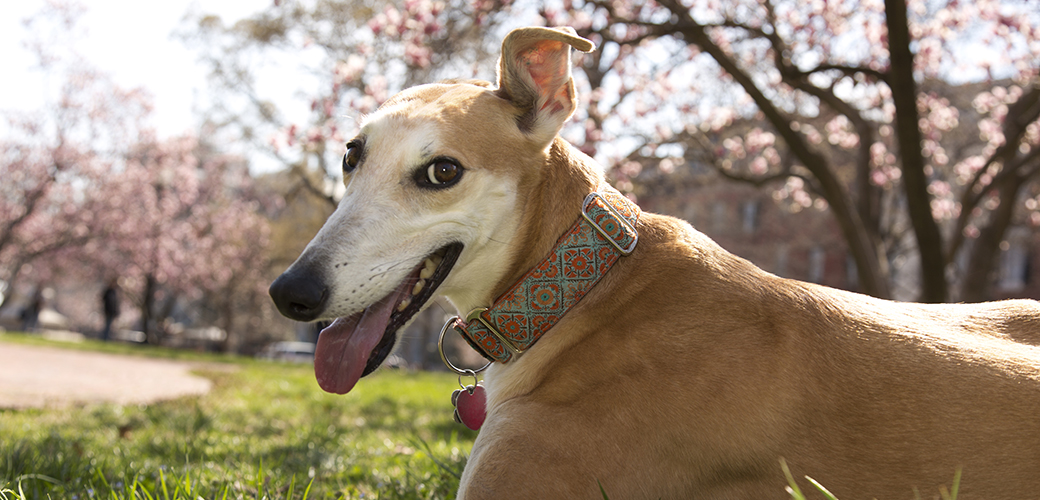

The weather is warming and birds are chirping, which can only mean one thing, Spring has sprung! Time to whip out the gardening tools and get some quality outdoors time in. But before you do, the ASPCA Animal Poison Control Center (APCC) has some helpful tips to keep your furry friends safe in your springtime garden.
Plant with a Plan
While many plants may be gorgeous additions to your garden, there are quite a few that can be dangerous, if not lethal, to our four-legged friends. Be sure to look at the below list of common toxic springtime plants before heading to the store and always consult our full list of toxic plants before bringing something new into your home or garden.
- Lilies are mostly a risk to cats when it comes to ingesting the plant. If either Daylilies or Asiatic lilies are ingested, it could result in severe kidney issues or even death.
- Tulips, Hyacinths and Irises can all pose a great threat to your pet’s health. All three are toxic to cats and dogs and can cause vomiting, diarrhea and drooling if ingested. While all parts of the plants are toxic, the bulbs are especially concentrated and therefore the most harmful part.
- Crocus has two different kinds of plants, one that blooms in spring (Crocus sp.) and one that blooms in the fall (Colchicum Autumnale)—both are toxic. The spring Crocus can cause gastrointestinal upset like vomiting, diarrhea and drooling if any of the plant is ingested. Alternatively, the fall Crocus can be much more severe with excessive vomiting, diarrhea, liver and kidney damage and bone marrow damage.
- Daffodil bulbs are especially toxic and can cause vomiting, diarrhea and drooling. If ingested in large amounts, it may cause depression, hypotension and sometimes seizures in both dogs and cats.
Other Gardening Dangers
Of course, while remaining mindful with your plants is important, there are a few other common hazards to look out for while gardening. For starters, fertilizer, while great for your plants, can be extremely appealing and potentially dangerous to curious dogs. If ingested, it can cause vomiting, diarrhea and weakness or stiffness in your pet’s hind legs.
In addition, insecticides, which keep pesky bugs out of your garden, can be hazardous to your furry friend if you don’t follow the directions on the bottle.
As a rule of (green) thumb, make sure your pet is out of the area when you are using fertilizers or insecticides and always follow all the label instructions. If you plan on bringing one of the dangerous plants from the list above into your home or garden, make sure your yard is fenced in to keep any snooping noses and poking paws away.
If you suspect your pet has been exposed to a potentially poisonous substances, contact your veterinarian or call the ASPCA Animal Poison Control Center at (888)426-4435 immediately.
Source: Read Full Article
